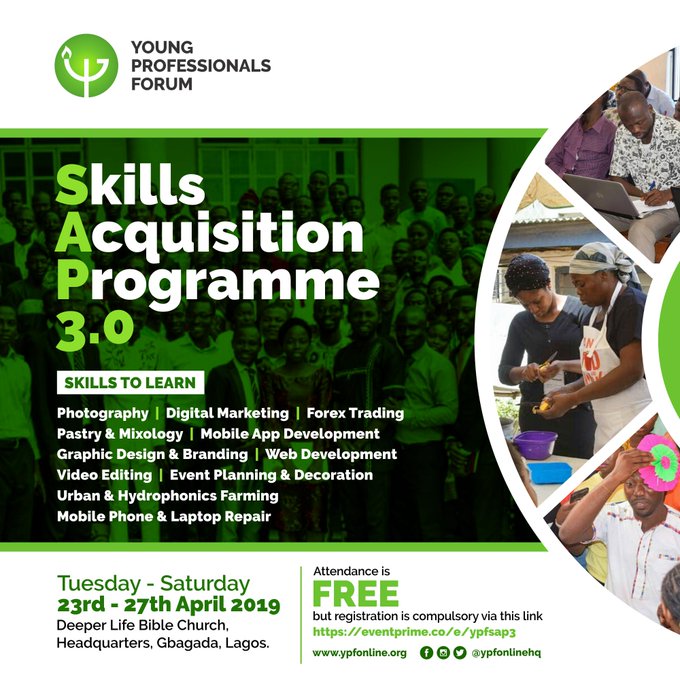He revealed that the N-Power Programme has so far provided jobs for 500, 000 young Nigerian graduates in the last two years.
The Vice President disclosed this while delivering a special lecture on “The Challenges of Human Development in 21st Century Africa” at the prestigious Oxford University, United Kingdom.
He said, “As the proportion of the working age group of 15-59 years will continue to increase steadily over the next years, Nigeria has the advantage of “demographic dividend‟. Harnessing the demographic dividend through appropriate skill development efforts provides an opportunity to achieve inclusion and productivity within the country.
“Over the past two years, through the N-Power Programme, the largest post-tertiary employment programme in Africa, we have been able to offer skills development programmes digitally to over 500,000 young citizens between the ages of 18 and 35. We have set a target of skilling 10 million Nigerians by 2023.”
Osinbajo also highlighted the provision of social housing in a Family Homes Fund as a “core plank of the government’s empowerment approach, which is expected to provide another 1.5 million jobs by 2023.
He said, “Our Family Homes Fund aims to provide up to 500,000 housing units by 2023 using a concessional financing facility to construct houses at less than N5m, as well as a home loans assistance programme that will enable people at the bottom of the housing pyramid to buy their own homes at subsidized rates. This will be complemented by a rent-to-own scheme.”
He also noted that a total of N55 billion has been disbursed to 250,000 farmers under the administration’s Anchor Borrowers Programme scheme, which provides subsidised credit to smallholder farmers so they can boost production with guaranteed uptake by the anchor companies
He added that the continued diversification of the Nigerian economy by this administration and its massive investment on infrastructure are some of the initiatives it has deployed towards promoting growth and human capital development in the country.
According to him, “We have also prioritized spending on infrastructure. Rail, roads, and power in particular.
“Despite earning 60% less than the previous administration, we have spent N2.7 trillion in two budget cycles on capital, the highest in the nation’s history.
“We also executed a comprehensive, phased plan for ease of doing business which earned us 24 places higher on the World Bank ease of doing business index and commendation as one of the top 10 reforming economies in the world.
“We launched our energizing economies project, providing solar power to markets and economic clusters for small businesses and petty traders”, Osinbajo said.
He also inaugurated the International Advisory Board (IAB) of Oxford University’s African Studies Centre, under the School of Global and Area Studies (OSGA).
The members of the inaugurated board are eminent leaders from across the world including several African countries like Nigeria and South Africa.
They are Mr Tito Mboweni, an international advisor of Goldman Sachs, and former Chairman of the South African Reserve Bank, who will chair the board; Madame Monica Geingos, First Lady of Namibia, lawyer and entrepreneur; Prof. Ibrahim Gambari, former UN Under-Secretary for Political Affairs, one-time Nigeria’s Permanent Representative to the United Nations and former Nigeria’s External Affairs Minister; and Dr. Charlotte Scott, former First Lady of Zambia and development specialist.
Others include Mr Gareth Ackerman, Chairman of Pick’n’Pay, South Africa; Mr. Alex Duncan, Director and Consultant Economist, The Policy Practice, Brighton, United Kingdom; Mr. Ivor Agyeman-Duah – Economist and author, Accra, Ghana; Governor Nasir El-Rufai, Governor of Kaduna State, Nigeria; and Ms. Linda Mabhena-Olagunju, founder and Managing Director, DLO Energy Group (Pty) Ltd, South Africa.
The Vice President was received by the Head, Oxford School of Global & Area Studies, Tim Powers; and the Director of the African Studies Centre, Prof. Wale Adebanwi.




0 Comments